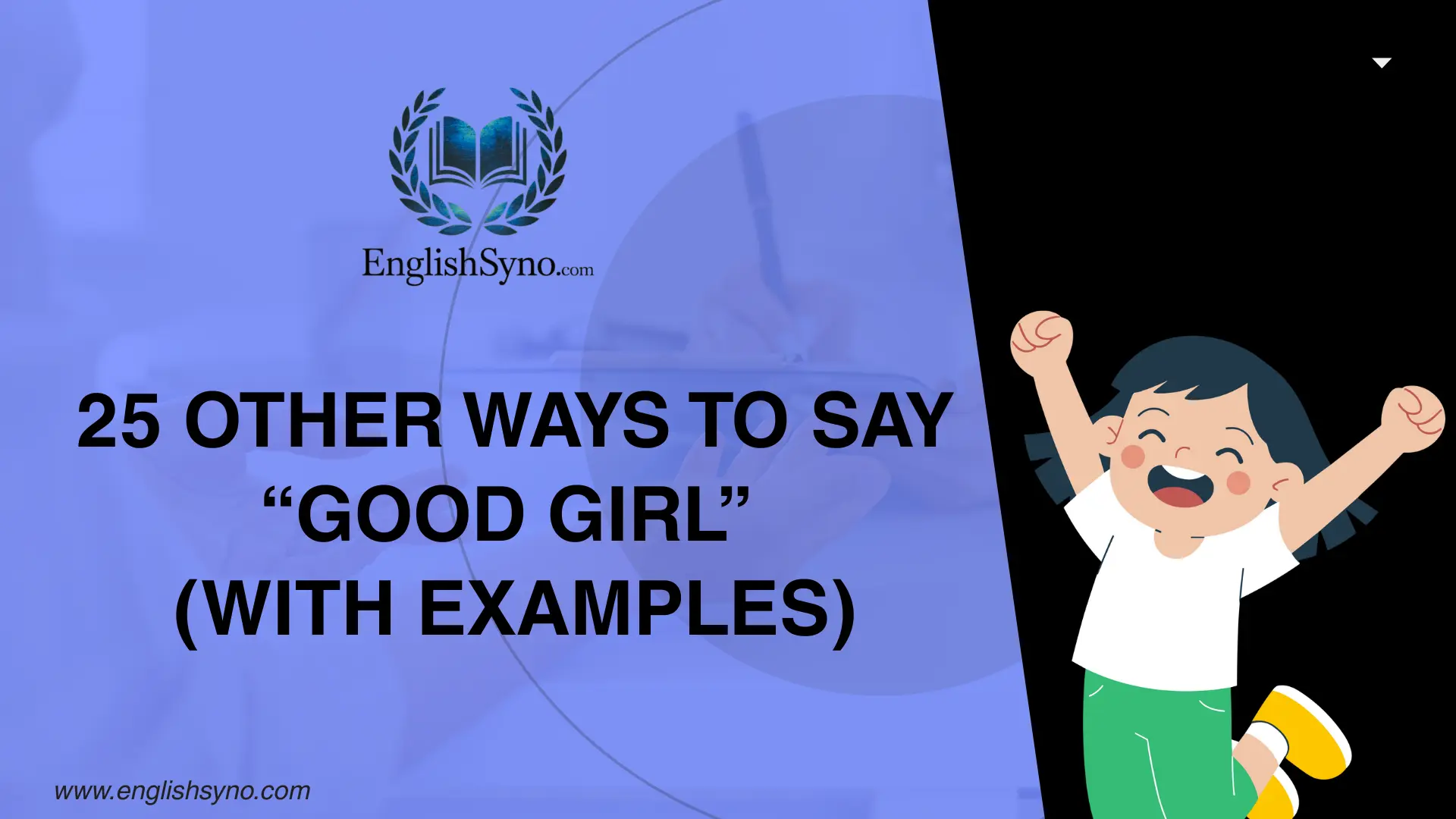When someone calls a good girl, the meaning often relies on the speaker, the situation, and the relationship between the people involved. In my experience, it usually refers to a female or child who is well-behaved, accommodating, and kind, showing traits that society considers praiseworthy. Yet as an adult, I’ve noticed that this term may sound patronizing or infantilizing, especially when it serves as validation or endearment that confines how a woman expresses herself.
Sometimes, I’ve seen the phrase used like a command, similar to how one might speak to a pet rather than a person. It reveals how many women learn to conform to societal expectations, repeating a pattern known as the “good girl syndrome.” This mindset can shape how individuals behave, fostering kindness and accommodation, yet also adding pressure to meet unrealistic standards. Understanding this complexity allows us to redefine what it truly means to be a good girl-not through society’s expectations, but through genuine self-worth and awareness.
What Does “Good Girl” Mean?
The phrase “good girl” is often used to show approval, praise, or affection. It can mean someone is being well-behaved, kind, or obedient. However, depending on the context and tone, it might sound patronizing or infantilizing, especially when used toward adults. The true meaning always depends on who says it, how it’s said, and to whom.
When to Use “Good Girl”
Use “good girl” when expressing praise or encouragement, such as with a child, a student, or even a pet. It works well when you want to reinforce positive behavior gently and kindly. However, it’s best avoided in professional or adult relationships unless there’s clear mutual comfort and understanding of tone and intent.
Is It Professional/Polite to Say “Good Girl”?
In most professional settings, using “good girl” is not appropriate. It can come across as condescending or unprofessional. In personal settings, however, it may sound sweet, affectionate, or encouraging, depending on your relationship with the person. Always be aware of context and personal boundaries before using it.
Pros or Cons
Pros:
- Conveys warmth, encouragement, and affection.
- Motivates and reinforces positive behavior.
- Simple and easily understood.
Cons:
- It may sound patronizing or infantilizing in adult contexts.
- Can feel outdated or gendered.
- Misuse can unintentionally offend or demean.
Well Done
Meaning: A phrase of genuine appreciation for someone’s effort or achievement.
Definition: Used to express that a person has performed something successfully.
Detailed Explanation: Saying “well done” shows recognition of someone’s hard work without sounding condescending.
Best Use: In professional, educational, or personal settings when acknowledging effort.
Worst Use: Avoid using sarcastically or without sincerity.
Tone: Positive, encouraging, and respectful.
Great Job
Meaning: Expresses enthusiasm and approval for a completed task.
Definition: A simple way to motivate or appreciate someone’s effort.
Detailed Explanation: It’s ideal for uplifting someone while keeping it casual and friendly.
Best Use: Team settings, parenting, or coaching.
Worst Use: Avoid overusing it can lose its impact.
Tone: Energetic and supportive.
I’m Proud of You
Meaning: A heartfelt phrase expressing admiration and emotional support.
Definition: Communicates pride in someone’s growth or achievement.
Detailed Explanation: This builds confidence and emotional connection, especially with loved ones.
Best Use: After achievements or milestones.
Worst Use: Avoid using if it feels forced or insincere.
Tone: Warm and affirming.
You Did Amazing
Meaning: A phrase showing strong admiration for performance.
Definition: Recognizes exceptional effort or success.
Detailed Explanation: Adds excitement and validation to someone’s accomplishment.
Best Use: After performance, school tasks, or projects.
Worst Use: Avoid exaggeration for small actions.
Tone: Encouraging, cheerful, and enthusiastic.
You Make Me Proud
Meaning: Expresses deep emotional appreciation.
Definition: Shows that someone’s behavior brings pride to another.
Detailed Explanation: Strengthens bonds through personal affirmation.
Best Use: Parent-to-child or mentor-to-student context.
Worst Use: Avoid using manipulatively.
Tone: Loving and supportive.
Excellent Work
Meaning: Praises high-quality effort or performance.
Definition: Used to acknowledge superior achievement.
Detailed Explanation: Suits professional or academic feedback.
Best Use: In workplace reports or formal praise.
Worst Use: Avoid casual overuse-it can sound insincere.
Tone: Professional and appreciative.
That’s Impressive
Meaning: Acknowledges effort and talent.
Definition: Expresses admiration for skill or achievement.
Detailed Explanation: Works for both formal and casual situations.
Best Use: Complimenting results or creativity.
Worst Use: Don’t use sarcastically-it changes meaning.
Tone: Respectful and admiring.
You’re So Talented
Meaning: Compliments someone’s natural ability.
Definition: Recognizes skill and creativity.
Detailed Explanation: Encourages confidence without sounding controlling.
Best Use: Artistic or professional contexts.
Worst Use: Avoid comparing to others-it reduces sincerity.
Tone: Appreciative and sincere.
Bravo!
Meaning: A short exclamation of applause or excitement.
Definition: Borrowed from Italian, meaning “well done.”
Detailed Explanation: Adds flair to praise.
Best Use: After performances or achievements.
Worst Use: Avoid using mockingly.
Tone: Expressive and cheerful.
You Did It!
Meaning: Celebrates completion and success.
Definition: Acknowledges perseverance and achievement.
Detailed Explanation: Builds motivation through positive reinforcement.
Best Use: Encouraging learners or teammates.
Worst Use: Avoid using dismissively.
Tone: Joyful and motivating.
You’ve Improved So Much
Meaning: Shows recognition of progress and growth.
Definition: A phrase used to encourage someone who’s been putting in effort.
Detailed Explanation: This alternative to “good girl” focuses on development rather than perfection, helping the listener feel capable and motivated.
Best Use: When mentoring, teaching, or offering personal feedback.
Worst Use: Avoid when progress is minimal-it may sound forced.
Tone: Supportive, motivational, and sincere.
Keep It Up
Meaning: Encourages consistency and continuous effort.
Definition: A friendly phrase used to maintain momentum.
Detailed Explanation: It’s short, upbeat, and a great way to maintain motivation without sounding demanding.
Best Use: Workplaces, sports coaching, or academic feedback.
Worst Use: Avoid overusing it might sound mechanical.
Tone: Positive, uplifting, and energetic.
That’s Fantastic
Meaning: Expresses strong enthusiasm and delight.
Definition: A warm and exciting way to show approval.
Detailed Explanation: This phrase works across different relationships, from family to coworkers.
Best Use: Celebrating big or small wins.
Worst Use: Avoid if the tone is sarcastic, it can sound dismissive.
Tone: Cheerful, enthusiastic, and heartfelt.
You’re Amazing
Meaning: Highlights admiration for someone’s qualities or achievements.
Definition: Used to express appreciation and recognition.
Detailed Explanation: It makes the person feel valued for who they are, not just what they do.
Best Use: When showing genuine admiration or affection.
Worst Use: Avoid using it generically-it loses emotional impact.
Tone: Warm, kind, and genuine.
You’re Doing Great
Meaning: Offers reassurance and encouragement during effort.
Definition: A supportive phrase for motivating ongoing work.
Detailed Explanation: This version of “good girl” replaces obedience with empowerment.
Best Use: During progress rather than after completion.
Worst Use: Avoid using when criticism is needed, as it may confuse.
Tone: Gentle, optimistic, and motivating.
I Appreciate Your Effort
Meaning: Acknowledges commitment and hard work.
Definition: A more respectful and mature alternative to “good girl.”
Detailed Explanation: Shows gratitude for effort rather than outcome, which builds trust and confidence.
Best Use: In personal or professional feedback.
Worst Use: Avoid if the listener hasn’t contributed much-it sounds hollow.
Tone: Respectful, appreciative, and empathetic.
You Nailed It
Meaning: Praises perfect execution or success.
Definition: A modern and fun phrase for excellent performance.
Detailed Explanation: It’s upbeat and confidence-boosting, ideal for friendly or casual settings.
Best Use: Teamwork, learning environments, or informal praise.
Worst Use: Avoid formal situations-it sounds too casual.
Tone: Excited, casual, and celebratory.
You Handled That So Well
Meaning: Recognizes grace and skill in a situation.
Definition: A way to affirm calm, maturity, or strength.
Detailed Explanation: This focuses on emotional intelligence, making it more meaningful than simple praise.
Best Use: After handling stress, conflict, or challenge.
Worst Use: Avoid exaggeration-it should match the event.
Tone: Respectful, calm, and admiring.
That Took Courage
Meaning: Honors bravery and strength in action.
Definition: Acknowledges emotional resilience rather than outcome.
Detailed Explanation: Encourages self-esteem by recognizing inner strength, not just behavior.
Best Use: When someone faces fear or takes a risk.
Worst Use: Avoid if the action wasn’t truly brave-it feels dismissive.
Tone: Empowering, compassionate, and validating.
You Inspire Me
Meaning: Expresses admiration that motivates others.
Definition: A phrase used to recognize someone’s influence.
Detailed Explanation: This alternative moves beyond praise-it builds mutual respect and emotional connection.
Best Use: Personal, creative, or mentorship relationships.
Worst Use: Avoid using lightly-it must be heartfelt.
Tone: Inspirational, emotional, and respectful.
That Was Thoughtful of You
Meaning: Praises empathy and consideration.
Definition: Highlights kind behavior that shows awareness of others’ feelings.
Detailed Explanation: It’s a more specific compliment than “good girl,” focusing on emotional intelligence.
Best Use: When someone does something caring or considerate.
Worst Use: Avoid using it if it wasn’t intentional, it’ll sound sarcastic.
Tone: Warm, caring, and appreciative.
You’ve Got This
Meaning: Offers reassurance and belief in ability.
Definition: Motivates someone to trust themselves.
Detailed Explanation: It replaces validation with empowerment, inspiring independence.
Best Use: Before challenges, tests, or public events.
Worst Use: Avoid if the person feels defeated-pair with empathy first.
Tone: Encouraging, confident, and supportive.
You’re So Kind
Meaning: Recognizes genuine compassion.
Definition: A heartfelt compliment that appreciates one’s gentle nature.
Detailed Explanation: This goes beyond behavior-it praises character.
Best Use: When someone helps or comforts others.
Worst Use: Avoid using flippantly-it should feel sincere.
Tone: Gentle, caring, and emotional.
You Make Everything Better
Meaning: Expresses appreciation for emotional or practical impact.
Definition: A loving phrase highlighting positive influence.
Detailed Explanation: This alternative to “good girl” communicates affection and gratitude.
Best Use: Romantic or close personal relationships.
Worst Use: Avoid in professional spaces-it’s too intimate.
Tone: Affectionate, heartfelt, and tender.
You’re a Star
Meaning: Praises excellence and positivity.
Definition: A cheerful, metaphorical phrase for someone who shines through effort or talent.
Detailed Explanation: It’s playful yet powerful, boosting self-esteem and warmth.
Best Use: Informal praise among friends, family, or coworkers.
Worst Use: Avoid overuse it can sound generic.
Tone: Bright, fun, and uplifting.
Final Thoughts
Understanding and rephrasing “good girl” opens the door to more empathetic, thoughtful, and empowering communication. Words carry emotional weight, and by choosing phrases that uplift, encourage, and respect individuality, you help create healthier conversations. Whether you’re a parent, partner, teacher, or leader, your language shapes how others feel valued and seen.
Replacing “good girl” with meaningful alternatives such as “you did amazing,” “I’m proud of you,” or “that took courage” doesn’t just praise-it builds confidence and connection. Each phrase can nurture trust, motivation, and emotional growth in ways that the traditional expression might not.
In today’s world, where communication defines relationships, expressing appreciation thoughtfully shows emotional intelligence and awareness. The goal isn’t to remove praise but to refine it, ensuring it fits both the context and the person receiving it. When praise feels authentic, it motivates; when it feels condescending, it creates distance.
So next time you want to acknowledge someone, choose words that truly match their effort, emotion, and essence. By doing so, you turn a simple compliment into a powerful expression of respect, gratitude, and genuine care-the kind that leaves a lasting positive impact.
FAQs
What does “good girl” mean?
“Good girl” is a phrase used to express praise or affection, often implying that someone behaved well or met expectations.
Is saying “good girl” outdated?
In many adult or professional settings, yes, it can sound patronizing, depending on tone and context.
When is it appropriate to say “good girl”?
It’s suitable when praising a child or pet, but should be used carefully with adults.
Why should I avoid using “good girl” in the workplace?
It may sound unprofessional or demeaning, especially in gendered or hierarchical environments.
What are better alternatives to “good girl”?
Try using “well done,” “great job,” or “I’m proud of you” to express encouragement.
Does tone matter when saying “good girl”?
Absolutely. A warm and genuine tone can make it feel caring, while a cold tone may make it sound belittling.
Can “good girl” be affectionate in relationships?
Yes, when used with mutual comfort and consent, it can feel intimate and loving.
Is “good girl” gender-biased?
It often is-it reinforces traditional gender roles, especially when used in unequal contexts.
How can I praise without sounding condescending?
Use phrases that show appreciation for effort, such as “You worked hard on that!” or “You handled that well.”
What’s the best alternative for kids?
Use “I love how you tried your best!” it praises effort, not just obedience.
Why do people say “good girl” to pets?
It’s a training phrase that reinforces positive behavior through repetition and tone.
How can I make praise more meaningful?
Be specific and sincere, highlight what you appreciate rather than using generic words.
Can “good girl” affect self-esteem?
Overuse may lead someone to seek approval rather than internal confidence.
Is it okay to use “good girl” playfully?
Yes, if both people understand and agree on its meaning in that context.
What’s the best rule for using praise?
Keep it respectful, relevant, and real-your words should reflect genuine appreciation and kindness.

Muhammad Altaf is an English language specialist and professional content strategist with over 10 years of experience writing and teaching practical English usage, professional communication, and tone awareness. His work focuses on helping readers express ideas clearly, naturally, and confidently in real-world contexts.


